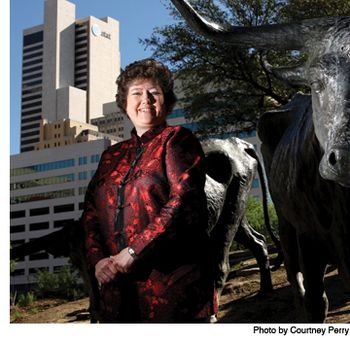
Taking the BizQuiz? This is the answer to question 3 of "Can you temper team conflict?"

Taking the BizQuiz? This is the answer to question 3 of "Can you temper team conflict?"

Diploma's in hand. Tests are passed. Now see if you've got what it takes to dive into practice.

The Pew Research Center recently released a study showing which groups Americans trust the most. Here are the results.

Americans put more confidence in small businesses than churches and government.

The Pew Research Center polls Americans on which groups get too much federal help.


New Yorkers and Californians are taxed heavily, while Texans and Floridians get off relatively easy.

Sometimes we just can't help ourselves. But then we end up paying the price.

Two tools to help you figure appropriate doctor compensation

Even when you know the law is on your side, you might be better off skipping a court date with Lady Justice

I averted disaster by keeping temperature taking and stickiness far, far apart. Thank goodness she called first.

Southampton, U.K. - Euthanasia and attitudes about humanity and ending life may be a factor in high suicide rates for veterinarians in the United Kingdom, a study suggests.

Judicious use of your clients' favorite social media tool can be a bridge to your clients - just make sure any embarrassing facts or photos are hidden from clients and colleagues.

Schaumburg, Ill - In response to increased scrutiny by the Environmental Protection Agency regarding the pharmaceutical disposal practices of healthcare facilities, the American Veterinary Medical Association has written a new policy to help veterinary practives stay in compliance.

It's no secret that dogs like to chew on bones. But do your clients know they can be deadly?

For the NCVEI's chief executive officer, profitability is key to the profession's future.

This executive director of VetPartners advises the profession from the outside-in.

These veterinarians are leading the charge for better education, communication, and financial strength in the veterinary profession.

April 22 is Earth Day. Celebrate in style by following these green tips from your colleagues.

Earth Day is April 22. Celebrate by following these tips from eco-friendly veterinary practices.

April 22 is Earth Day. Celebrate in style by following these green tips from your colleagues.

April 22 is Earth Day. Celebrate in style by following these green tips from your colleagues.



Dr. Lori Hess worked for months to create a veterinary hospital tailored specifically for exotic animals. Here's a peek at the result.



Two studies focus on motivations for entering and leaving rural practice.

Tips to turn around a lousy day working at the veterinary hospital.

Fraud and embezzlement can happen to you. Read about a college panel discussion on the topic, then discuss on dvm360.com.